

eduCAting the heArt And Mind
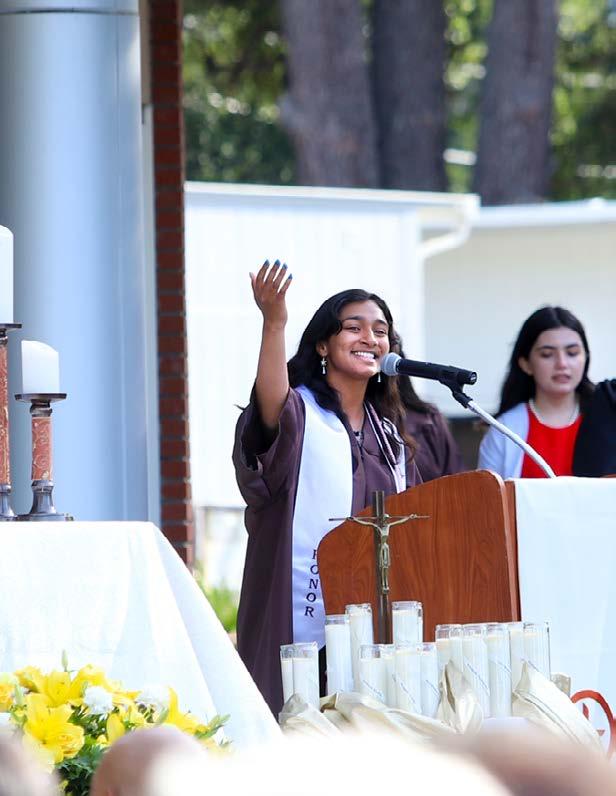
“We shall always place education side by side with instruction; the mind will not be cultivated at the expense of the heart.”
Blessed Basil Moreau, Circular Letter 36; 1849
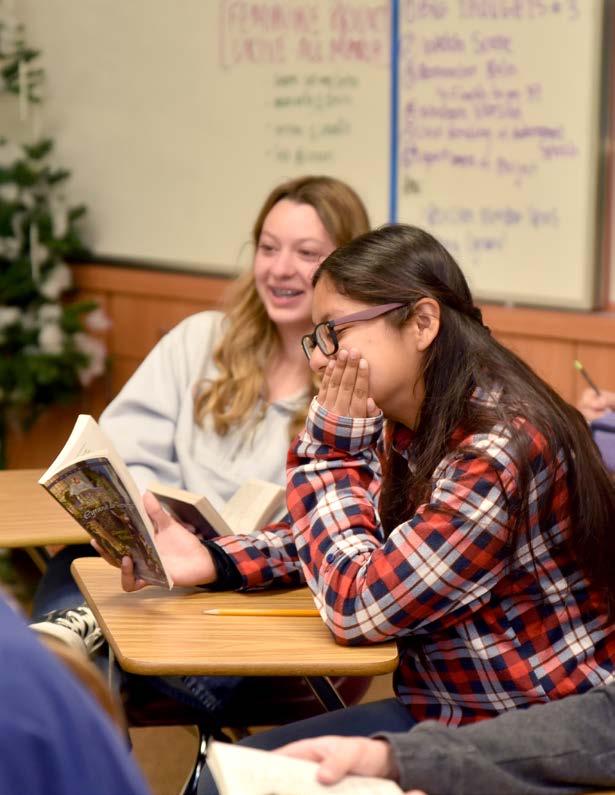
Introduction
Philosophy
The Guidance and Counseling Office at Saint Francis High School is dedicated to
• Facilitating a successful experience with the college admissions process
• Helping each student make an informed decision regarding the best fit for his or her future.
Process
This process should include the student, the family, and the counselor working together as partners. It is a two part process, which includes self-discovery by the student of
• What criteria they value most in a college
• Researching of what schools best meet their plans.
Role of Counselor, Family and Student
The role of the counselor in the college application process is to
• Present timely and relevant information, communicate tasks and deadlines
• Advise during college planning meetings
• Complete the SSR (Secondary School Report) and Written Evaluation.
The role of the family in the college application process is to
• Assist and support the student on maintaining deadlines and finishing tasks
• Assist in completing the financial aid application.
It is the student’s responsibility to research colleges and majors for a good fit.
• Ask questions to be sure that they understand all of the application components
• Register for college admissions tests and submit scores
• Complete and submit their college application by the deadline.
Communicating With Colleges
We encourage you to use your assigned Saint Francis email when corresponding with colleges.
• Colleges typically use email as the preferred method of communicating information.
• It is important that you check your email daily.
• When emailing colleges, use proper grammar, don’t abbreviate and avoid using slang such as LOL or BTW.
• Try to maintain a professional identity as much as possible with all correspondence.
Beginning The College Search Process
Know Yourself
Who are you? This question may seem odd, but it’s an important one!
• Your own assessment of your interests, attitudes, and abilities is central to finding the right college.
• The purpose of searching for colleges is to find the right match.
• Presenting yourself in an authentic way will make it more plausible for you and your prospective college to find a perfect match.
• Honestly assessing your interests, personality, goals, aptitudes and characteristics will be beneficial for the college application process…and you may even learn something new about yourself along the way!
• In getting to know yourself, remember to examine yourself as a person and as a student.
• One main resource to help you understand who you are is:
MaiaLearning:
• MaiaLearning allows students and their parents to utilize college search tools with data results specific to Saint Francis students.
• Students can log into their account by going to maialearning.com and using their SFHS account.
• Within MaiaLearning, students have access to a variety of assessments.
• We recommend that students use these interest surveys and personality assessments to better understand their interests.
Research
Deciding where to apply and attend college is one of the biggest decisions that you have probably made up to this point in your life.
• Spending quality time and energy researching appropriate schools will pay dividends.
• The college application process can be a daunting one; however, if you are equipped with the right information, the process becomes much more streamlined.
• There are a few rules to live by when conducting your college research:
Be open-minded:
• There are thousands of colleges in the United States and abroad, and it is likely that you could find your place at the majority of them.
• Try not to exercise too much judgment on a school until you have taken the time and energy to fully understand all of the institution’s offerings.
• Don’t let one aspect of the school (i.e. an undesirable location) deter you from digging deeper and finding out if the school is a match for you!
Ask questions:
• In conducting your research, if there is information you come across that you don’t understand, ask your counselor, parent, or a friend.
• The college application process is a new experience for you, so it is only natural that questions will arise in your research.
Don’t get caught up with the numbers:
• Statistics allow us to gain an understanding of how one school stacks up to another. However, at the end of the day, statistics are simply numbers.
• Reading statistics with a cautionary eye is always recommended.
• One statistic that can be particularly telling about a school is graduation rates.
• A school with a high graduation rate likely has fewer impacted majors and students carrying an exorbitant amount of debt.
Gathering quality information:
• It is crucial to gather information from multiple sources when conducting college research.
• Luckily, we live in a time where information is easily accessible.
• It is up to you, however, to be the smart consumer!
• In addition to MaiaLearning, we recommend the following resources when conducting research:
College Fairs:
• Attending a college fair is a great way to learn about many schools at once.
• A college fair is a gathering of many colleges in one place, each with its own table of resource materials and representatives ready to talk to prospective students like you.
College Admissions Websites:
• Combing the internet is a great way to find information on specific schools.
• Each college has a robust website with more information than you could imagine, including virtual tour options.
• Visiting a school’s website is a valuable way to see the school from their own lens.
College Admission Counselor Visits:
• Each year, Saint Francis hosts admission officers from all over the country.
• The admission officers enjoy visiting our campus because it gives them a chance to meet prospective students and educate you about their school and unique programs.
• Admission officers often provide advice regarding the application and use these school visits as an opportunity to meet prospective students.
• Over 100 admission officers visit Saint Francis each year, primarily during lunch or collaboration.
• For an up-to-date schedule on when admission officers will be visiting, be sure to frequently check the Visits tab in your MaiaLearning account.

Building Your College List
Factors to Consider
There are several big factors to consider when developing your college list.
Academic Programs:
• What courses of study does a school offer?
• Does it offer a major in the specific subject you’re interested in?
• If you’re undecided, does the school offer a range of courses and majors that may ultimately satisfy what you want to do?
• Can you change from one college to another within the university – for example from engineering to liberal arts?
• Does the school have a core or open curriculum?
• Are classes large lectures or small seminars?
• Do faculty or graduate students teach introductory courses?
Athletics:
• Do you want to be at a school with NCAA Division I athletics?
• Is a “big-game” atmosphere important to you?
• Is it important to you to be able to participate in intramural or club sports?
Campus Housing:
• Do most students live on or off campus?
• Is the campus considered a commuter campus?
• Is housing guaranteed for first-year students?
• Is housing guaranteed for all undergrads?
• Where do students live if they don’t live in the dorms?
• Is housing co-ed?
• Are cars allowed on campus for freshmen?
Campus Culture:
• What is the social climate?
• Is it dominated by a Greek system?
• Populated by artsy students?
• Is the library busy on a Friday night?
• What type of people do you encounter on the quad?
• Is reputation or prestige a factor for you?
Cost:
• If cost is a concern for your family, keep this in mind as you look at schools.
• If you’re a student with good grades and test scores, don’t rule out any school at this point on the basis of cost alone.
• Be sure your list includes colleges with a range of price points and financial aid.
Student Body:
• What is the ethnic breakdown of the student population?
• Does the school have a specialized mission around diversity (Historically Black College or Hispanic-Serving Institute)?
• Is a diverse student body important to you?
Mission:
• Is the school religiously affiliated?
• How much does religion play into student’s lives?
• Is there an active religious community?
Student Involvement:
• What kind of entertainment is available – music, art, theater, improvisational comedy?
• Is there a lecture series and if so, whom do they bring to campus?
• What kind of public service and volunteer opportunities are there?
• Is there a strong internship program?
• Are there ethnic organizations?
• Is there an activity you can’t live without?
• Are fraternities and sororities available?
Location:
• Location encompasses considerations of geography, climate and distance from home.
• Are you ready to be far from home?
• Do you want to live in a part of the country or world you’ve never experienced?
• Are you ready for the cold winter of a campus in the Midwest or Northeast?
Setting:
• Do you want a school with an urban, suburban or rural setting?
• Do you want the peace and quiet of a college located in a quiet suburb, the isolation of a school in the Rockies, or the hustle and bustle of a big-city campus with access to museums, shopping and entertainment?
• Are there services available – medical, mental health and restaurants?
College Size:
• Does the size of the school matter?
• School enrollments can range from a few hundred students to tens of thousands.
• Size can impact the range of majors offered, a school’s athletics, extracurricular activities, opportunities for involvement, the sense of community and the amount of attention a student will receive from faculty and staff.
Confident Match, Match, Reach, Unpredictable
Only apply to schools you would be happy to attend. Plain and simple.
• It is important to be realistic when crafting your college list.
• Take some time to reflect on all of the research you have conducted.
• Once you feel you know enough about a good handful of schools and why each of those schools would be a good fit, it is time to develop a well-balanced college list.

• We recommend you apply using no more than 10 applications.
• Trust us, the time that goes into even 10 applications is significant.
• Of those 10 colleges, you should have at least 2-3 confident match schools and 2-3 match schools.
• The rest of your list can be filled out by reach/unpredictable schools.
Confident Match:
• A school in which your academic profile falls well above the average accepted student profile.
Match:
• A school in which your academic profile falls in the middle of the average accepted student profile.
Reach:
• A school in which your academic profile falls below the average accepted student profile.
Unpredictable:
• Any school in which the accepted admissions rate is below 25%. For these institutions, admissions is highly selective for everyone.
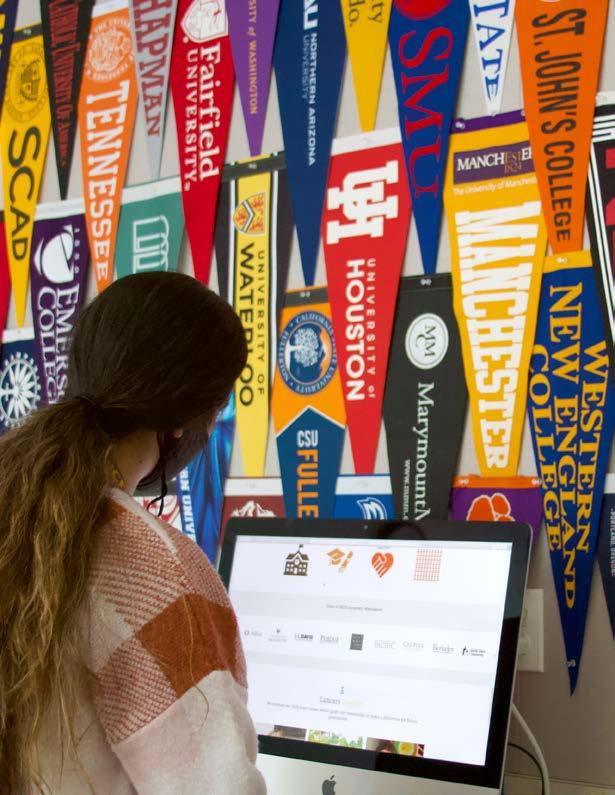
Visiting College Campuses
Importance of Tours
How will you know which college is right for you?
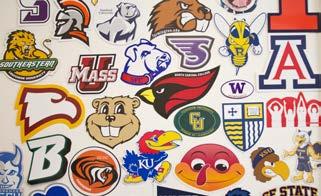
• There is no better way to get to know a college than by visiting the campus.
• By visiting a college’s campus, it can come to life and you can gain a sense of the school’s climate, atmosphere, and student body.
Types of Tours and How to Set Up a Tour
Most colleges offer a visit program, which can include:
• Student-led campus tours
• Classroom visits
• Admissions group sessions
• Seeing dormitory life
• Discussions with professors
• Interaction with current students.
• Tours are generally set up by visiting the college’s admissions website.
• The National Association of College Admission Counselors offers a great checklist. to reference when visiting a college campus.
Virtual College Tours and Other Useful Websites
• Physically visiting a certain college campus isn’t always feasible. Fortunately, there are a lot of virtual options that are available.
• We recommend taking a virtual college tour prior to visiting and as part of the research process so you are as informed as possible.
• In addition to each individual college campus’ website, there are many resources that offer virtual tours including:
• YouVisit
• CampusTours

Components Of The College Application
Application Plans
Early Action:
• Many colleges offer an opportunity to apply early and receive an admissions decision early.
• Normally, the student applies in November and receives a response in December or January.
• This is a non-binding admission plan and the student does not need to reply until May 1.
• If you are deferred under this plan, you will be reconsidered with the regular applicant pool.
• The major benefit to early action is that you will know your admission outcome much sooner than if you applied under regular decision.
Restrictive Early Action:
• This is sometimes also known as Single Choice Early Action.
• REA is similar to Early Action, however, students may only apply to one school in the early time period.
• Some colleges will allow you to apply to another college early if merit scholarship is tied to the deadline.
• Ensure you read each school’s policy and definition as it may differ.
Early Decision:
• With an Early Decision (ED) plan, the student applies in November and often receives a response in mid-December.
• Acceptance is binding, and the student must attend if accepted and withdraw all other applications.
• If you are deferred under this plan, you will be reconsidered with the regular applicant pool.
• If you are denied under this plan, your application will not be further reviewed.
Early Decision II:
• ED II is a binding early-decision process with later deadlines than ED.
• Typically, the application deadline is the same as for the regular admissions process, but a decision is sent far sooner with ED II.
Priority:
• Some schools offer a priority admissions plan for certain majors or to be eligible for scholarships.
Regular Decision:
• This is the standard application and decision timeline and generally serves as the final deadline for a college.
• While some regular decision deadlines can occur earlier, they often fall in December through February and admissions decisions are released in March through April.
Rolling Admission:
• In this application plan, applications are reviewed when they are submitted and decisions are released on a rolling basis.
Note:
• Please discuss all EA and ED plans with your counselor.
• For ED applications, you must submit an ED agreement, which requires the student, a parent and your counselor’s signature.
Writing
The writing component is the one thing over which students have absolute control. It provides a sample of your writing and a reflection of your interests and values.
• The writing component will range anywhere from 200 to 1,000 words with varying topics ranging from “tell us about yourself” to “describe a character in fiction, a historical figure or a creative work that has influenced you.”
• Try to view the writing component as an opportunity to express who you really are.
• Common App - essay prompts
• UC PIQ - essay prompts
Grades
• Many applications require students to self-report their academic history.
• It is crucial you are accurate when entering your grades.
• Please be sure to refer to your transcript as you are filling out your academic history and triple check each entry.
• All information will be verified when the college receives your official transcript.
Resume/Activities List
• Traditionally, resumes are used in the job application process; however, creating and using a resume for the college application process will be valuable.
• Think of the resume as a document that highlights your extracurricular accomplishments and provides the viewer with a reflection of who you are.
When to Use Your Resume:
• If used appropriately, this one-page snapshot can assist you throughout the application process.
• We recommend creating a resume as soon as possible because there are several opportunities throughout the college application process where a resume will be handy.
Letters of Recommendation:
• Providing your recommenders with your resume is best practice.
• It is likely your recommenders are only familiar with one aspect of your high school identity, but with your resume on hand, your recommendation will be more comprehensive and reflective.
Interviews:
• Arriving at an interview with your resume communicates professionalism.
• Additionally, the resume can often structure the flow and conversation of an interview.
• Be sure to print several copies for the interview on resume paper because you never know how many people will interview you.
While Completing Your Applications:
• The Common Application and UC Application require applicants to fill out an activities and awards section.
• A complete and accurate resume will tremendously assist you in this tedious process.
Creating a Resume:
• A helpful tool in creating a resume is MaiaLearning.
• You can log activities in the Resume tab of the Portfolio section of your account.
Highlighting Leadership:
• Generally, colleges are interested in depth over breadth; meaningful involvement in quality activities is preferred.
• We caution students from becoming involved in too many activities because colleges can interpret this as padding your resume.
• It is preferable to participate in fewer activities but pursue a leadership position whenever possible.
• Taking a leadership role demonstrates commitment, passion and initiative – three qualities admission officers love to see in applicants.
• Another possibility is starting your own club, project, activity or endeavor.
Interviews
• A college interview is an opportunity for students to talk about their accomplishments, goals and interest in the respective school.
• Very few colleges require an interview, but some may offer an interview as an option.
• Interviews can take place on or off campus, in person or virtually. If an interview is an option, it is usually beneficial because it is a way to bring your application to life and demonstrate your interest in the college.
Setting up an Interview:
• Each college has a unique protocol for securing an interview.
• Visit the school’s website as early as possible and follow directions accordingly.
• If you know you will be visiting a school at a specific time, call the admissions office to request an interview and provide the dates you will be on campus.
• For interviews off campus, colleges will usually have alumni or faculty members conduct the interviews. Palo Alto, Santa Clara and San Francisco are popular destinations for alumni interviews.
Letters of Recommendation
• While UC and CSU campuses will not accept letters of recommendation, most private and some out of state public schools require or accept letters of recommendation.
• Recommendations give colleges valuable information about you as both a student and as a person.
• Be sure to look for specific guidelines from each individual college on how many recommendations are required and from whom. This can vary from school to school!
Who to Ask:
• You should give careful thought to those you will ask to complete your recommendations.
• Ask teachers who know you well and can comment on both your intellectual skills and potential, as well as your personal strengths.
• Recommendations should come from teachers that you had in your junior or senior year in academic subjects: math, science, world language, history, or English. (Your counselor will also complete a Secondary School Report for you, which includes a letter of recommendation.)
How to Ask:
• Students have an opportunity to ask teachers for a letter of recommendation during both the end of junior year and the beginning of senior year.
• The letter of rec request process is explained to students during class presentations in the junior year.
• These requests should be made in person.
• After requesting a letter of recommendation, students should be sure to fill out the Teacher Rec Questionnaire and submit it to their teacher.
• Students should only ask for the number of teacher recommendations that are required by the colleges that they are applying to, with a maximum of two letters.
• Students should only ask for a second letter if one of their colleges requires a second letter for admissions.
Standardized Test Scores
• It is the student’s responsibility to register for and send standardized test scores to any university with which they would like for their test scores to be used in their application for admission.
• As a reminder, the UC and the CSU systems will not be using test scores for admissions purposes for the Class of 2023.
• Students can register for these tests on the testing agency’s website.
High School Documents
(Transcript, School Profile, Secondary/Mid-Year Report)
• There are four documents your counselor will send on your behalf if requested by the college.
• The process and deadlines for providing your counselor with your college list and requesting these documents will be provided during a presentation at the beginning of senior year.
Transcript:
• You will be asked to provide your classes and grades in most of your applications.
• Some colleges use this self-reported data instead of an official transcript initially.
• Colleges that rely on self-reported data will ask for an official transcript once you are accepted.
• Other colleges may want an official transcript sent with the application and then again after your first semester grades from senior year are available.
• Read all instructions carefully, adhere to deadlines and don’t send colleges documents that they did not request.
School Profile:
• The school profile is designed to give a college context on your educational setting.
Secondary School Report:
• Your counselor will fill out a Secondary School Report for most of the schools on your college list.
• Information requested on the report usually includes GPA, disciplinary history, and several open-response questions relating to your academic and personal character.
• The main function of the Secondary School Report is to allow the counselor to elaborate on any special issues of which he or she thinks the college should be aware.
Mid-Year Report:
• The mid-year report is typically requested if no senior-year grades were available when your transcript was sent and includes a mid-year transcript.
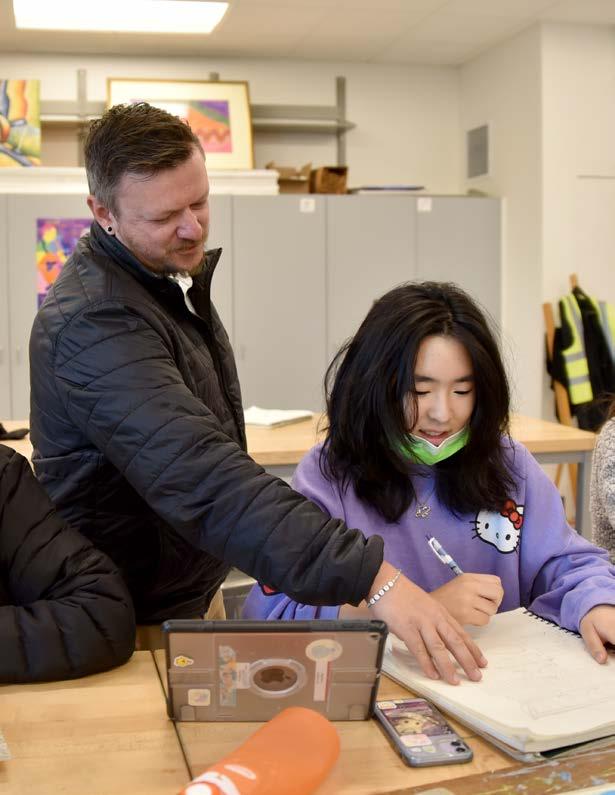
Colleges By Type
4-Year vs. 2-Year
Four-year colleges offer four-year programs that lead to a bachelor's degree.
• These include universities and liberal arts colleges. Two-year colleges offer programs that last up to two years that lead to a certificate or an associate degree.
• These include community colleges, vocational-technical colleges and career colleges.
University vs. College
Universities often are larger and offer more majors and degree options—bachelor's, master's, and doctoral degrees—than colleges.
• Most universities contain several smaller colleges, such as colleges of liberal arts, engineering, or health sciences.
• These colleges can prepare you for a variety of careers or for graduate study. Some colleges focus on a specific interest or student population.
• These include: arts colleges, single-sex colleges, religiously affiliated colleges, specializedmission colleges.
Liberal Arts
Liberal arts colleges offer a broad base of courses in the liberal arts.
• They include areas such as literature, history, languages, mathematics and life sciences. Most are private and offer four-year programs that lead to a bachelor's degree.
• These colleges can prepare you for a variety of careers or for graduate study.
Public
Public colleges are funded by local and state governments.
• They usually offer lower tuition rates than private colleges, especially for students who are residents of the state where a college is located.
Private
Private colleges rely mainly on tuition, fees and private sources of funding.
• Private donations can sometimes provide generous financial aid packages for students.
• You can usually expect: smaller class sizes, top-notch professors and more opportunity for merit-aid.
Selective
Selective schools have low admission rates.
• To determine a school’s selectivity rate, divide the number of students admitted by the number of students who applied.
Religiously Affiliated – Catholic, Holy Cross and Jesuit
• Religiously affiliated schools are private colleges that are connected to a religious faith.
• The connection may be historic only or it may affect day-to-day student life.
Catholic colleges
• Typically operate with a liberal arts core
• Offer an array of programs
• Maintain a commitment to Catholicism.
Sample Catholic schools include:
• Catholic University, DePaul University, University of San Diego and Providence College.
Holy Cross education is one of the core ministries of the Congregation.
• Founder Blessed Basil Moreau charged priests and brothers to be “educators in the faith” and to educate the hearts and the minds of students.
Sample Holy Cross colleges include:
• College of the Holy Cross, University of Notre Dame, Stonehill College, University of Portland and St. Edward’s University.
Jesuit education stems from its deep-rooted history and mission grounded in faith and intellectual rigor.
• Since its beginnings in 1548 when the first Jesuit institution opened its doors in Messina, Sicily, Jesuit higher education remains committed to academic excellence, service, leadership and caring for the whole person.
Sample Jesuit colleges include:
• Boston College, Marquette University, Fordham University, Georgetown University, Loyola Marymount University, Santa Clara University, University of San Francisco and Xavier University.
Military
• A Military Academy is an educational institution designed to grant Bachelor’s degrees and prepare students for services in the army, navy, air force or coast guard.
• Some require sponsorship by a member of congress as an admission criterion.
WUE
• Western Undergraduate Exchange (WUE) is a program of the Western Interstate Commission for Higher Education (WICHE).
• Through WUE, students in western states may enroll in more than 140 two-year and four-year college institutions at a reduced tuition level: 150 percent of the institution’s regular resident tuition.
• Students from California are eligible to request the WUE tuition discount.
Application Types
The Common Application
The Common Application is an undergraduate college admission application that applicants may use to apply to any of the member colleges and universities.
• There are more than 900 member institutions.
• These member colleges/universities include public and private, large and small, highly selective, modestly selective and East Coast, West Coast and every region in between.
The Common Application is composed of the following sections:
• Family, education, testing, activities and the essay
• In addition to submitting the common application to each of the schools on your list, many schools require what is known as a supplement.
• Supplements vary from school to school; however, most supplements collect more in-depth personal information from the applicant and an additional essay or series of questions is required.
The University of California System
The University of California (UC) system is composed of 9 undergraduate campuses.
• The UC System tends to focus on research based learning, which may be appealing to students who plan on pursuing doctorate level studies or who will go into research and discovery based careers.
• The UC Application is composed of education, activities and Personal Insight Questions.
• The application is available to students on August 1 and may be submitted between October 1 and November 30.
• Applications submitted after November 30 will not be accepted.
California State University System
The California State University (CSU) system is composed of 23 campuses.
• The CSU system focuses on the combination of theoretical with practical applications and can be good for students that are looking to learn specific skills that they can apply immediately as they enter the workforce, such as accounting, teaching and nursing careers.
• The CSU Application is open from October 1 to November 30.
• Applications submitted after November 30 will not be accepted.
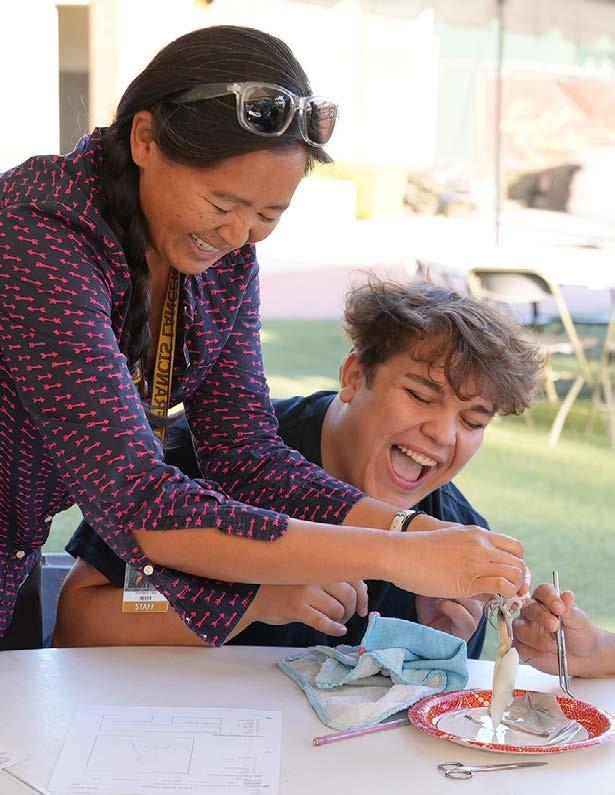
Financial Aid
The cost of attending college varies greatly, and students and families should explore both public and private institutions as they look at college costs. The Federal Student Aid homepage offers ample information about the types of financial aid that are available for students.
Types of Aid
There are two major sources of aid available to families.
Grants and Scholarships:
• Funds awarded to the student without expectation of repayment.
• Grants can come from federal and state governments, colleges and private organizations.
Loans:
• Loans are borrowed by students and parents to help meet college costs.
• A loan must be repaid with interest and this type of aid is available through the federal and state government, institutions and private lenders.
• Be mindful of interest rates and terms, for some loans are more favorable than others.
FAFSA
The Free Application for Feder al Student Aid (FAFSA) is a free application that each student must file every year to be eligible to receive federal and state financial aid.
• The federal government uses the information you report on the FAFSA to determine how much aid a student will be eligible for based on theirs and their parents' income (if the student is a dependent).
• They determine how much your Estimated Family Contribution (EFC) will be.
• EFC is the amount of money the government says that your family can contribute to your education.
• The FAFSA is available on October 1 of the student’s senior year.
CADAA
The California Dream Act allows undocumented and nonresident students (U.S. Citizens and eligible non-citizens) who qualify for a non-resident exemption under Assembly Bill 540 (AB 540) to receive certain types of financial aid such as:
• Private scholarships funded through public universities
• State administered financial aid
• University grants
• Community college fee waivers
• Cal Grants
• In addition, the California Dream Act, allows eligible students to pay in-state tuition at any public college in California.
CSS Profile
The College Board administers the CSS Profile.
• It is an online application that collects information used by certain colleges and scholarship programs to award institutional aid funds.
• Remember, all federal funds are awarded through the FAFSA.
• It is important that you find out which of the colleges you are applying to require the CSS Profile.
Scholarships
Merit Scholarships:
• Some colleges and universities will have scholarships based solely on merit and superior academic qualifications.
• Requirements and processes vary from institution to institution.
• Sometimes students need only to check the appropriate box on the application as a way of letting colleges know that the student wants to be considered for a scholarship
• Sometimes an entirely separate scholarship application is required.
• Be aware that scholarship application deadlines can sometimes be earlier than the deadlines for regular admission.
Private Organizations and Corporate Scholarships:
• Numerous private organizations (the Elks, the Rotary Club, etc.) and companies send applications for scholarship to the Guidance and Counseling Office.
• The criteria may range from an outstanding academic record to the excellence of a specific project to an unusual degree of volunteer involvement in the community.
• In addition, there are a number of competitions for scholarships available to students with special qualifications having to do with ethnic background, special talent, affiliation with a fraternity or sorority, club membership and religious belief.

After You Apply
Student Portals
Many colleges require students to set up what is referred to as a student portal.
• After you submit your application, the college will likely send you an email with a link to set up your portal.
• Be sure to write down your username and password for each school’s portal in a safe place where you will remember it.
• Each college uses portals differently, but most commonly a portal is used as a means of communication.
• Notification of missing documents, confirmation that all documents have been received, and admission notices are common uses for the portal.
• Once you enroll as a student at a particular college, you will likely register for classes and pay your tuition through your portal.
7th and 8th Semester Grades
Keep your grades up! Contrary to a popular belief, your senior year grades do count.
• While your sophomore and junior year grades are most significant in terms of calculating your GPA (UC and CSU particularly), senior year grades are important for two main reasons.
• First, it is possible for your admission offer to be rescinded after receiving low or failing grades during the 7th and 8th semesters (first and second semester of your senior year).
• Colleges have access to your 7th semester grades via the mid-year reports.
• A final transcript will be sent to your selected college once you graduate.
• Secondly, slacking during the senior year will make you less prepared for the collegelevel work that lies ahead!
May 1 Deadline
May 1 is the universal reply date for candidates to send your SIR (Statement of Intent to Register) to inform the college of your decision.
• You may ONLY ACCEPT ONE college.
• It is unethical to do otherwise (known as “double depositing”), and you could risk being disqualified from all your schools if you break this rule.
• It is also best practice to notify the schools you are turning down.
• Once your final decision has been made, notify ALL colleges so that your spot may be offered to others.
• Remember to tell your counselor which college you have decided to attend!
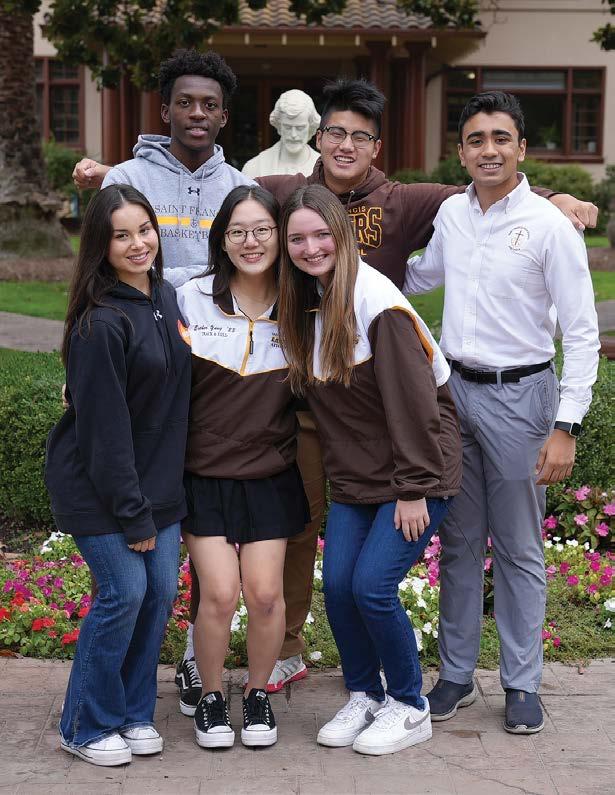
Special Populations, Talents And Needs
Athletes
There is a multitude of information for you and your family to understand when preparing you for transitioning from high school to becoming an NCAA Division I, II or III student-athlete.
• For more information, see the SFHS Guide for College Bound Athletes.
Special Talents
Students who are particularly gifted in an extracurricular area will receive careful attention on their application if the information is adequately presented.
• Special talents can include activities like art, dance, music and theater.
• Some colleges require supplementary materials, usually referred to as a portfolio.
• A portfolio is a way for you to bring your special talent to life and illustrate your unique style to the admission committee.
• These extra materials can help the college understand what makes a student special and what he or she will bring to that campus.
• Be sure to talk with your counselor early if you are looking into these programs.
Learning Differences
The college application process can be overwhelming for all involved.

• This process can be especially overwhelming for students with learning differences, as one considers admission standards, testing and access to support services at the college level.
• Luckily, most colleges and universities provide support for students with documented learning disabilities.
• It is the student’s role to advocate for themselves and take the initiative to seek out proper services.
College Tasks Checklist
JUNIOR FALL PSAT, Junior Advising #1
Student & Parent: Become familiar with the SFHS Counseling Website (www.sfhs.com/counseling).
Student: Create a CollegeBoard account at www.collegeboard.org.
ege visits throughout the semester.
Student: Attend Junior Advising #1 Workshop with your counselor.
Student: Explore MAIA Learning.
Student: Create a testing plan with your counselor.
Student & Parent: Visit (or virtually visit) colleges during Winter Break. There are many great colleges nearby that you can drive through!
JUNIOR EARLY SPRING Course Scheduling, College Research, Junior Advising #2
Student: Attend Scheduling Presentation in January.
Student: Attend Junior Advising #2 Workshop with your counselor.
Student: Do your college research. Check out the counseling website for a list of resources.
Student & Parent: Attend the Junior College Workshop in March.
Student & Parent: Attend a College Fair (in person or virtually).
Student: Attend college visits. Register in MAIA Learning.
Student: Start building your college list with your counselor. Add at least 5 colleges to your "Considering List" in MAIA Learning.
Parent: Attend one Junior Parent Coffee Talk (April - May).
JUNIOR LATE SPRING College Research, Testing, College List Formation
Student: Attend Junior Advising #3 Workshop with your counselor.
Student: Create a Common Application after Advising Session #3.
Student: Think about Teacher Recommendation requests (more information will be given in Junior Classroom Advising #3).
Student: Update your resume by June 1 in MAIA Learning.
Parent: Complete Junior Parent Survey by June 1. This will be sent out in early spring.
Student: Register with the NCAA Eligibility Center if applicable.
Student and Parent: Complete the Federal Student Aid Estimator to determine what your Estimated Family Contribution may be for college.
Student: Register for a Summer College Workshop.
SUMMER College Research, Application Essay Writing
Student: Continue your college research using MAIA Learning and/or BigFuture
Student & Parent: Visit (or virtually visit) college campuses.
Parent: Talk to your child about "sticker price" and cost of attendance before forming a college list.
Student: Use the Net Price Calculator at each college's website to learn more about the estimated cost of that college. Ex. Saint Edward’s
Student: Brainstorm and work on your college essay. If you already have colleges on your list, work on supplemental essay questions.
Student: Update your resume in MAIA Learning before the Senior First Day of School Workshop.
Student: Build your “Considering List” in MAIA Learning.
SENIOR FALL College List, Financial Aid, Send Scores, Submit Applications
Student: Match Common Application to MaiaLearning.
Parent: Attend one Senior Parent Coffee Talk (September).
Student: Request Teacher Letters of Recommendation (if necessary). If applicable, submit Teacher Rec Questionnaire.
Student: Sign up for and attend College Rep Visits. The list of colleges visiting SFHS can be found in MAIA Learning.
Student: Finalize “Applying List” in MAIA Learning.
Student: Submit Counselor Letter Request Form (information given during Senior Advising session).
Student: Send Standardized Test scores (if submitting to colleges).
Parent: Complete Senior Parent Survey.
Student and Parent: File FAFSA and CSS Profile (if applicable) after October 1ß.
Student: Submit College Applications by the college’s deadline!
Student: Research Scholarships.

